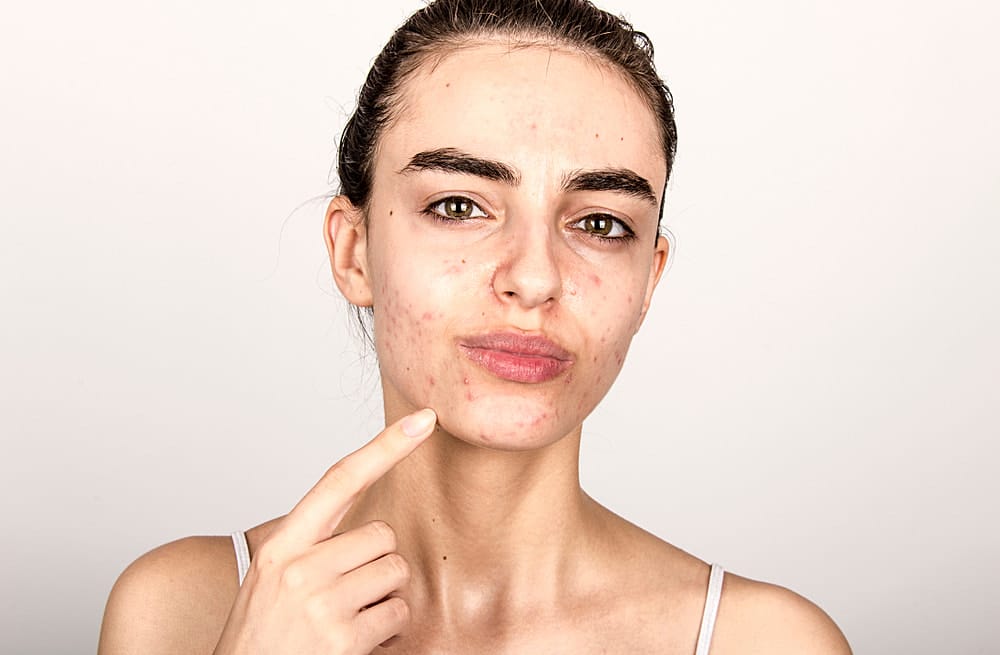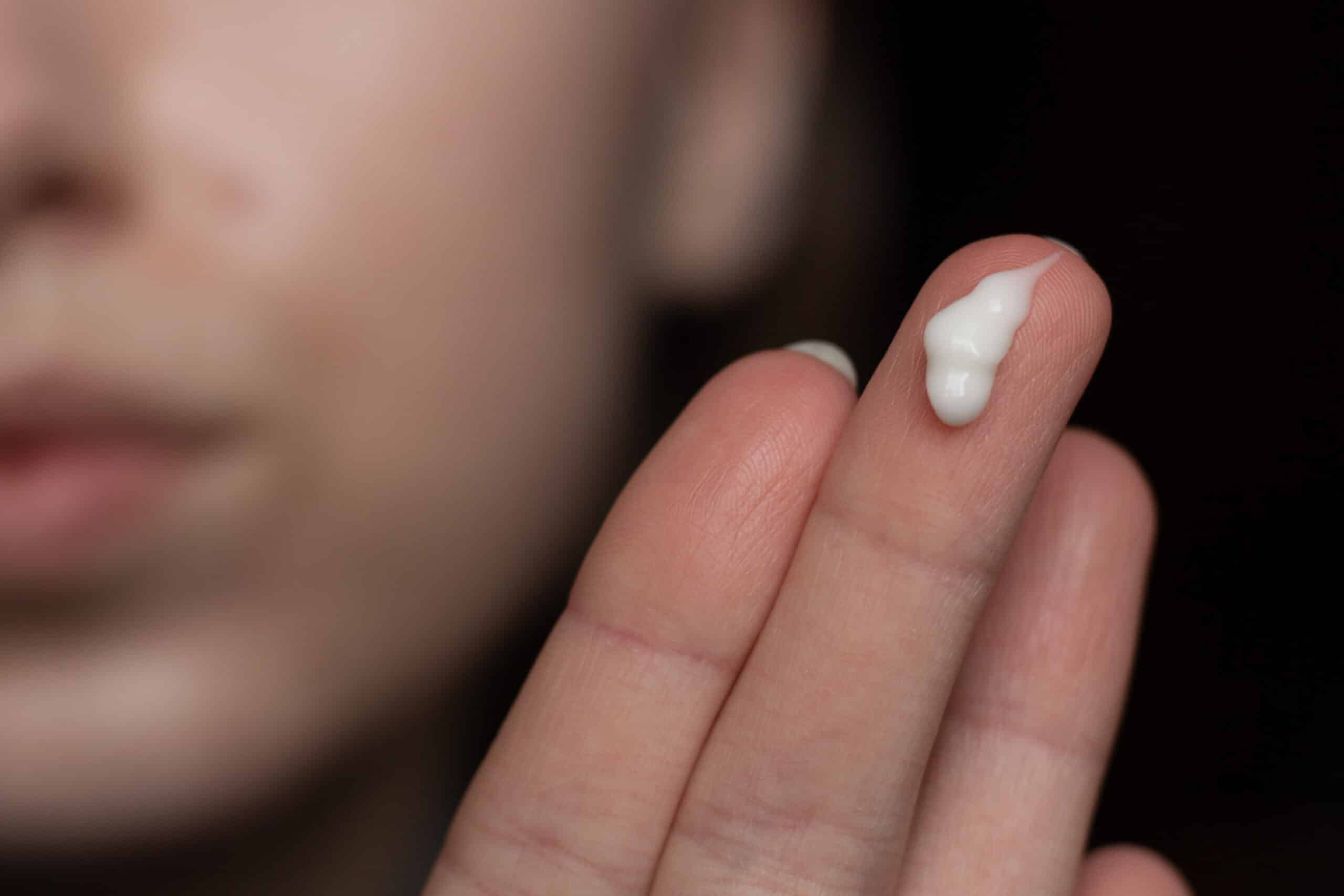
Retinoids in Singapore: Acne Treatment, OTC Availability, Side Effects
- November 30, 2022


While new skin ingredients appear every now and then, there are some that stand the test of time, like retinoid, which was first approved for use by the FDA in 1971.
Retinoid is able to treat acne, pigmentation and various signs of ageing. Because of its multifaceted properties, it has been used in prescription medicine and, as a diluted version, in over-the-counter (OTC) products. Retinols, retinaldehyde and retinyl are some examples of the weaker version of retinoid.
What exactly are retinoids and why are they prized in acne and other treatments? Are the OTC versions as effective as the prescription ones?
Read on to find out.
Retinoids are a class of compounds derived from vitamin A that can improve the appearance and health of your skin. Retinoids work by influencing cell turnover and stimulating collagen production, making your skin smoother and firmer while also diminishing fine lines, wrinkles and age spots.
Retinoids also help regulate oil production, making them effective in treating acne and reducing pore size. Retinoids can also be used to treat hyperpigmentation, uneven skin texture and signs of ageing.
Retinoids accelerate the rate at which your skin cells shed and renew themselves. This process, known as cell turnover, helps to remove dead skin cells, revealing fresher, smoother skin underneath.
One of the most sought-after benefits of retinoids is their ability to minimise the appearance of fine lines and wrinkles. By stimulating collagen production, a key protein responsible for skin’s firmness and elasticity, retinoids can help to plump up the skin, reducing the appearance of fine lines and wrinkles. Consistent use of retinoids can help you achieve a smoother, more youthful complexion.
Retinoids can help lighten hyperpigmentation, including sunspots, age spots, and post-inflammatory hyperpigmentation caused by acne. Additionally, retinoids can improve skin’s texture by reducing the appearance of acne scars, rough patches, and other imperfections, giving you a more even and refined complexion.
Retinoids regulate sebum production, unclog pores, and reduce inflammation – these actions prevent the formation of comedones and new acne lesions.
By promoting cellular turnover, reducing discoloration, and enhancing skin texture, retinoids contribute to a healthier, more vibrant complexion. With regular use, retinoids can significantly improve the overall brightness of your skin
Retinoids have been FDA approved for the treatment of acne since 1971. Evidence-based guidelines for acne, including those from the American Academy of Dermatology (AAD) and the European Dermatology Forum (EDF), have agreed that retinoids play an important role in treating acne.
The most commonly prescribed retinoids include tretinoin, adapalene, tazarotene, and more recently, trifarotene.
Tretinoin is one of the most well-known and extensively studied retinoids. It is widely prescribed in Singapore for the treatment of cystic acne, sun damage, fine lines, and wrinkles.
Tretinoin works by accelerating cell turnover, reducing the formation of acne lesions, and promoting collagen synthesis. This medication is also known for its efficacy in reducing hyperpigmentation, melasma and photoaging.
Tretinoin has been proven safe and well tolerated in their recommended concentrations of 0.025% to 5%. It is available in various formulations, including creams, gels and solutions.
Adapalene is a retinoid specifically approved for the treatment of acne. It exhibits potent anti-inflammatory properties and effectively prevents the formation of acne lesions. Adapalene helps normalise the shedding of skin cells, unclogs pores, and reduces inflammation associated with acne.
Tazarotene is another retinoid used primarily for the treatment of acne and psoriasis. It works by normalising cell turnover, reducing inflammation, and preventing the formation of comedones (clogged pores).
Tazarotene is proven to promote wound healing and is available in different concentrations and formulations, including creams and gels, allowing for customised treatment options.
Trifarotene is a newer addition to the retinoid family and the first retinoid specifically approved for the treatment of acne on both the face and trunk.
It provides a targeted approach for managing acne symptoms and is highly effective in reducing both inflammatory and non-inflammatory acne lesions, clearing clogged pores, and improving skin texture.
If you suffer from truncal acne, then you may consider trifarotene treatment as an addition to your skincare routine. It is available in topical cream or gel formulations and has been proven safe and well-tolerated by individuals.
Currently the only retinoid available OTC is adapalene (brand name Differin) – but keep in mind that OTC retinoids are not as strong as prescription retinoids.
This is because prescription retinoids:
Over-the-counter retinoids still can help improve skin texture and reduce wrinkles, but if you’re looking for significant and long-lasting improvements, then consider getting retinoids from a doctor’s office instead.
For those who are looking for something less potent, there is retinol, retinaldehyde and retinyl, which contain a lower concentration of active ingredients compared to retinoids, and are available OTC in various formulations, including skincare products.
Retinol is the most popular form of retinoid among skincare users. It is considered milder compared to prescription-strength retinoids and is better suited for those with mild to moderate skin concerns.
Retinaldehyde, also known as retinal, is more potent than retinol. It can provide similar benefits to retinol, but with faster results. Skincare products containing retinaldehyde may be a suitable option for you if you have concerns about the efficacy of retinol.
Retinyl is a precursor of retinol. It is commonly found in skincare products such as retinyl palmitate, retinyl acetate, or retinyl propionate.
Retinyl is milder than retinol and would require a higher concentration to achieve similar skincare benefits. This is why skincare products containing retinyl are often marketed as gentler options that are suitable for sensitive skin types.
When considering which form of retinoid to incorporate into your skincare routine, it’s important to assess your skin’s needs, sensitivity level, and personal preferences. Retinyl, retinol, and retinaldehyde offer varying degrees of potency, with retinol being the most commonly used and readily available option.
In order to achieve the best results, it is recommended to use retinoids in these following ways:
Retinoids in skincare products are generally safe for use and many have seen positive results from their usage. There are certain side effects, which can be minimised through a consultation with a professional.
By increasing the turnover of skin cells, retinoids can cause dryness, flakiness and peeling. In addition to dryness, retinoids can also trigger redness and itching. This is because retinoids can irritate the skin barrier, leading to inflammation and discomfort.
Retinoids make the skin more susceptible to sun damage because of its exfoliating effects. This is why you must apply sunscreen when using it as part of your skincare routine.
You may experience purging when starting a retinoid routine. Purging occurs when there is an increase in cell turnover, which brings debris, dead skin and sebum from deep within the skin to the surface. This clogs the pores, leading to breakouts. It can be frustrating, but purging is a sign that the retinoid is working.
To soothe irritated skin during purging:
With patience and proper care, purging from retinoids will get better and eventually resolve, leading to clearer, healthier skin over time. Consult your doctor or a specialist if the purging persists after several weeks or becomes more severe
Retinoids have been associated with birth defects when used in high doses, particularly during the first trimester of pregnancy. It is recommended that women who are pregnant or planning to become pregnant avoid using retinoids.
On the other hand, the evidence on the safety of retinoids during breastfeeding is limited. While there have been no known cases of harm to infants from topical retinoid use, it is recommended to err on the side of caution and avoid using it during breastfeeding. This is because there is a possibility that the retinoids could be absorbed into the bloodstream and transferred to the infant through breast milk.
If you are a first-timer choosing a retinoid on your own, it is recommended to start with a gentle product such as a low-concentration retinol. A patch test is recommended, especially for those with sensitive skin. You may opt to use the retinoid every alternate day for a few weeks before increasing the frequency to daily.
However, if you are unsure where to start, unsure of your skin type, concerned about side effects, need results fast, or simply need a professional opinion, it would be best to consult an experienced healthcare professional.
Retinoids offer a multitude of benefits for improving skin texture, treating acne, and addressing other skin concerns. While they can come with potential side effects such as skin irritation and increased sensitivity to the sun, these can be managed with proper skincare habits.
If you’re considering incorporating retinoids into your skincare routine or need specialised advice on acne and other skin concerns, we invite you to visit our clinic.
SL Aesthetic Clinic has a team of experienced doctors in Singapore that can provide personalised treatment plans and help you achieve your skincare goals.
Book a consultation today and embark on a path towards healthier, more radiant skin.
Like what you read? Share them!